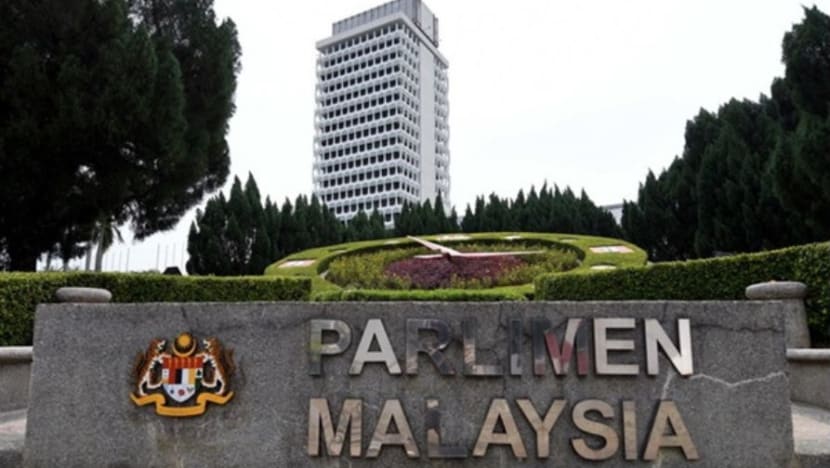Malaysia’s anti-party hopping law gets nod from parliament with overwhelming bipartisan support

A file photo of the Malaysian parliament. (Photo: Bernama)
KUALA LUMPUR: Malaysia’s Lower House of parliament passed the anti-party hopping Bill on Thursday (Jul 28), paving the way for the country’s Federal Constitution to be amended to include clauses against political defection.
The vote on the Bill saw 209 MPs voting in favour, with 11 absent, exceeding the required two-thirds majority needed for a constitutional amendment.
There is currently a total of 220 MPs in the lower house and no member present voted against the Bill.
In a press conference after the vote, de facto law minister Dr Wan Junaidi Tuanku Jaafar said that the next step would be to bring the Bill to the Upper House on Aug 9 for approval.
He said that according to the timeline he expected the anti-hopping law to take effect from first week of September.
Earlier, when wrapping up the debate, Dr Wan Junaidi said the constitutional amendment showed that both government and opposition representatives could come together at a table for discussions, and carry out important objectives for Malaysians.
“This Bill is not a 100 per cent solution to all our problems, but a first step,” he said.
During the tabling of the Bill for its second reading on Wednesday, Prime Minister Ismail Sabri Yaakob, said his government took party hopping seriously as it had given rise to debates and polemics among the general public.
The proposed constitutional amendments, he said, would ensure political stability and prevent an endless political crisis in Malaysia.
In his debate speech to support the Bill, opposition leader Anwar Ibrahim said that Malaysia’s politicians and the country’s political system are facing a crisis of confidence, especially among young Malaysians due to party hopping and defections.
The two days allotted for proposed constitutional amendments saw 54 MPs from both government and opposition taking part in the debate.
Party hopping had been a major cause in the 2020 downfall of the Pakatan Harapan (PH) government.
The then opposition Barisan Nasional (BN) coalition also lost significant presence in parliament when 15 MPs from United Malays National Organisation (UMNO) party-hopped to Parti Pribumi Bersatu Malaysia (Bersatu) when the latter was part of the PH between 2018 to 2019.
Dr Wan Junaidi had previously said that Malaysia’s democratic practices were unhealthy as 39 parliamentarians had switched political allegiances and three prime ministers had been appointed since the 2018 general election.
The anti-party hopping legislation has been one of the key points of agreement in the Memorandum of Understanding on bipartisan cooperation between the government and opposition PH bloc.
BIPARTISAN MOU EXPIRES WHEN PARLIAMENT IS DISSOLVED: PM
On Wednesday, Mr Ismail Sabri said that the government and the opposition have agreed that there is no need for a new written agreement to replace the MOU.
“To continue or not to continue (the MOU) is not important. What’s important is the understanding to continue protecting public interests,” Bernama quoted Mr Ismail Sabri after launching an education event in Kuala Lumpur.
He said that the MOU will only expire when parliament is dissolved and not on Jul 31 as previously reported.
According to Mr Ismail Sabri the MOU only mentioned that the next general election shall not be held before Jul 31 and the date was not the expiry date of the memorandum.
















